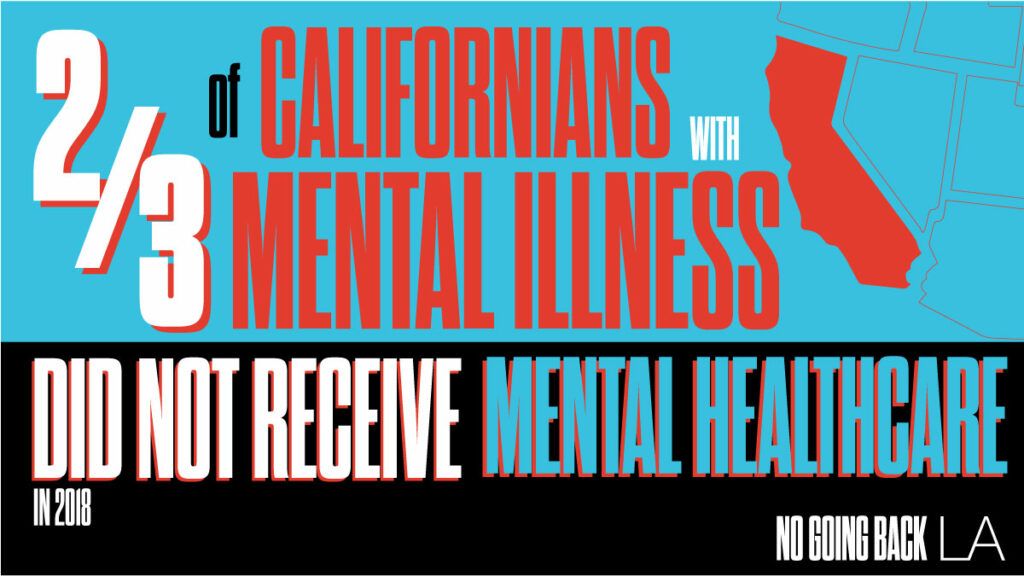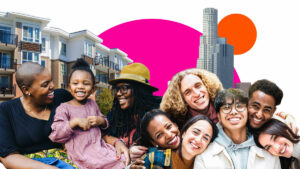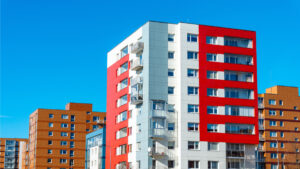The Challenge
The intersection of mental health and racism is a structural issue that has long negatively impacted large numbers of Angelenos. With the COVID-19 pandemic continuing to exacerbate this toll since the release of the “No Going Back LA” report last fall, it is time to fully address these intertwined public health issues.
COVID-19 has brought mental health — and the dysfunction of our mental healthcare infrastructure — into sharp relief. This should come as no surprise; after all, continuing economic hardship, uncertainty, isolation, illness, and bereavement place very clear and significant strains on mental health. And as with many other critical issues, the impacts of COVID-19 on mental health have been felt most acutely by Black, Latino, Native American, Asian American, LGBTQIA+, and other disadvantaged and marginalized communities.

- 1 in 3 American households with income < $30k report “mild to severe psychological stress
- 31% of BIPOC Californians reported worsened mental health due to racial discrimination
The explicit links between racial discrimination, poorer psychological well-being, and more limited access to mental health resources are only compounded by the fact that BIPOC communities are disproportionately at risk of being in the child welfare system, criminal justice system, or experiencing homelessness — even prior to the pandemic. Already, Black youth under 13 were twice as likely to die by suicide as their White counterparts nationally, with over 30 percent of California’s prisoners receiving treatment for mental illness, and about one-third of unsheltered individuals in LA County suffering from a longstanding mental health disorder. COVID-19 has only exacerbated this by placing these disadvantaged communities, which disproportionately are represented among frontline and essential workers, under increased economic stress and the burdens of the stay-at-home order, which for many has meant grief, isolation, substance use, intimate partner violence, and even homelessness.
The Way Forward
The significant impact of the COVID-19 pandemic — and the starkly unequal way in which it has affected Angelenos — is a call to action. First, we must recognize the need to mainstream mental health within our healthcare and law enforcement infrastructure, both in terms of access and funding — by reforming health insurance services to provide equitable and flexible funding for mental health services. Second, recognizing that racism is a public health issue, we must work to address the basic needs that most harm mental well-being: housing and safety, meaningful employment opportunities, access to healthcare, trauma and resilience-informed learning environments for children, social connections, and support networks. Finally, we must build culturally competent mental health support while empowering communities and their members to advocate and care for each other.
Some important work is already being done in these areas. LA City’s Therapeutic Transportation pilot looks to carefully remove armed response from situations that do not require it by dispatching mental health experts to certain 911 calls. Similarly, LA County has sought to increase the capabilities of its Department of Mental Health, including by earmarking $29.9 million for crisis and intervention services, $10.1 million to support Integrated Correctional Healthcare Services in jails, and $9.8 million to expand its Promotores De Salud Mental Health outreach and education program and adapt it to additional underserved cultural communities. Finally, the newly-created Community Ambassadors Network seeks to empower communities by hiring, training and certifying community members as lay mental health workers in their own neighborhoods.
More needs to be done, however. Funding needs to be unlocked to better integrate mental health into healthcare, law enforcement, and prisons, but also in private and public insurance programs. Just as importantly, we must invest in creating community-based support and meeting basic needs, without which mental health and the psychological effects of racism will continue to haunt Angelenos and their communities.



